 Petzlover
Petzlover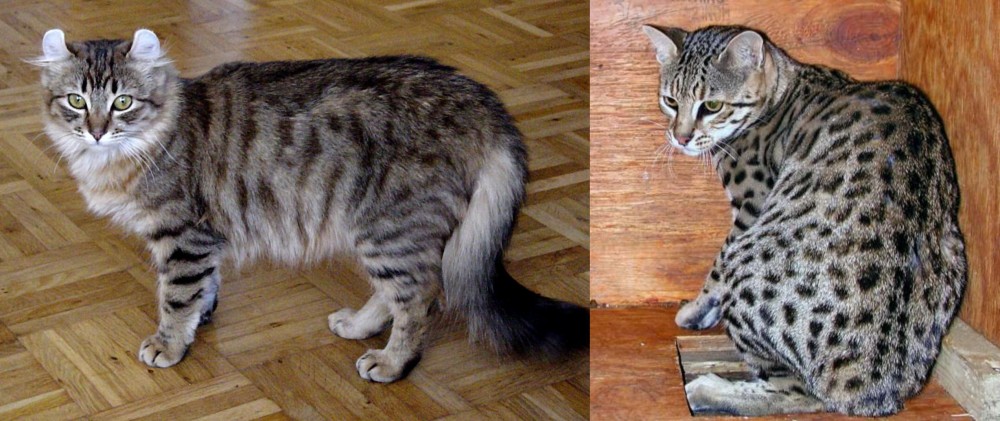 Both American Curl and Safari are originated from United States. American Curl may weigh 6 kg / 13 pounds lesser than Safari. American Curl may live 5 years less than Safari. Both American Curl and Safari has same litter size. American Curl requires Moderate Maintenance. But Safari requires Low Maintenance
Both American Curl and Safari are originated from United States. American Curl may weigh 6 kg / 13 pounds lesser than Safari. American Curl may live 5 years less than Safari. Both American Curl and Safari has same litter size. American Curl requires Moderate Maintenance. But Safari requires Low Maintenance
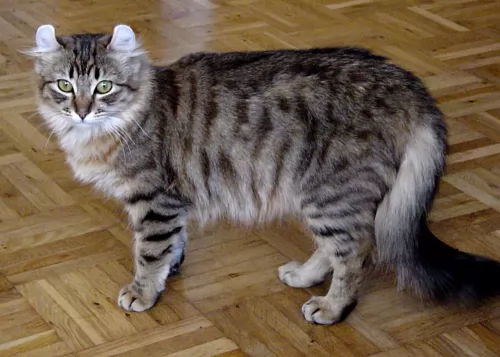 The American Curl is well known for its unusual shaped ears and for being one of the youngest cat breeds.
The American Curl is well known for its unusual shaped ears and for being one of the youngest cat breeds.
It developed in California. The first of these cats appeared to have been strays that arrived in California in 1981. The black female’s name was Shulamith, and she gave birth to a litter with the same curled ears, and was the ancestor of the American Curls of today.
Appearing in a cat show in 1992 for the first time, the longhaired American Curl was then given championship status by TICA and it was also admitted to the Cat Fanciers Association’s championship class in the long- and shorthaired divisions.
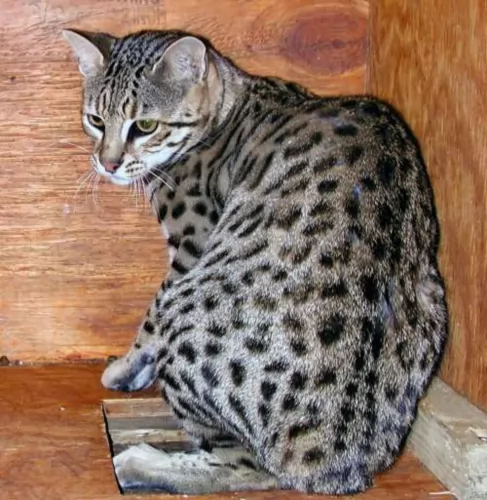 The Safari Cat, hailing from the USA, is one of the rarest breeds of cats. There are only about 70 of these cats registered at the International Cat Association.
The Safari Cat, hailing from the USA, is one of the rarest breeds of cats. There are only about 70 of these cats registered at the International Cat Association.
The Safari cat is a mix of a moggy and Geoffroy's cat. At first, the cat was used for research purposes by Washington State University but then cat breeders took over the development of the breed.
The name ‘Safari’ was chosen because of its wild look.
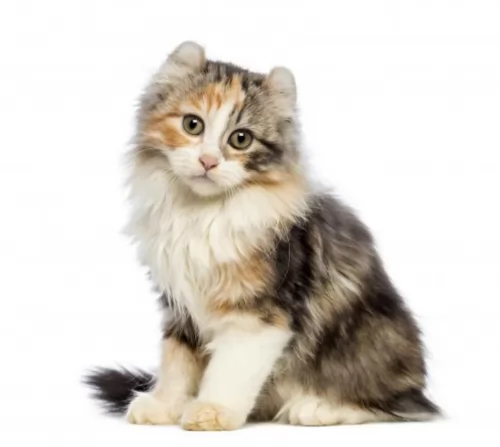 The American Curl is a medium-sized cat weighing roughly 2.3–4.5kg. Its a cat that stands between 21 and 27cm in height.
The American Curl is a medium-sized cat weighing roughly 2.3–4.5kg. Its a cat that stands between 21 and 27cm in height.
It’s also a cat that takes a fairly long time to mature, reaching maturity about 2 or 3 years of age. The most distinctive feature of this cat is its unusual ears that curl backward as opposed to standing up like most other cats. At birth the ears are straight but they gradually start curling back, staying in a tight bud position.
The American Curl's coat is soft and silky and doesn’t require too much grooming. The fur comes in colors such as grey, white, apricot, black, and the coat can be a solid color or in a host of different patterns such as bi-color, triple-color, tabby, ticking and others.
The head is round, the eyes of the cat are large, giving the cat an alert, friendly look. The eyes can be many different colors from blue to green, amber, copper, hazel, and yellow.
The American Curl Cat loves his human family and gets on well with children too. He is an adaptable cat, settling into different lifestyles. You’ve got to watch him around small children who might manhandle him and pull his sensitive ears.
Nonetheless, he is sociable and loving. He is an intelligent cat, being active and alert and will even follow you around to see what you’re doing that he can be involved in too. He isn’t a particularly talkative breed but he loves to play and can even learn to fetch a smallish ball.
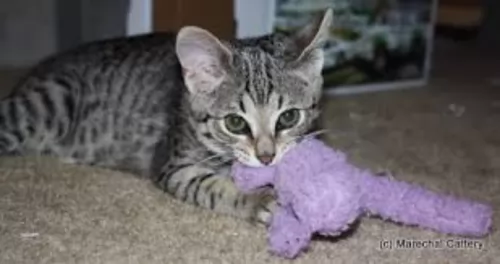 The hybrid Safari cat is a medium to large-sized cat that at first weighed in the region of 15kg, but the cat now weighs roughly 11kg.
The hybrid Safari cat is a medium to large-sized cat that at first weighed in the region of 15kg, but the cat now weighs roughly 11kg.
Its body is much like that of the wild parent, the Geoffroy – muscular and compact. The ears aren’t particularly large and are smallish, rounded ears with a fairly broad head.
It has a typical wild cat look and is a spotted or rosetted cat breed. Below the spots, the coat is a silvery grey shade.
The coat which is short actually comes in a variety of colors that come from both cat breeds. The eyes of this cat are either yellow or green. The Safari cat certainly has a wild cat appearance, because of the cross-breeding. This is a rare cat and because of this, there is no breed standard for it.
They can live to be between 17 and 20 years of age.
Even though one of the parent breeds is a wild cat, the Safari cat is described as an easy-going cat that can make a good pet.
The cat is very intelligent and playful and will enjoy swimming and climbing. It is for this purpose that he needs to have quite a large outside enclosure with a pool of sorts so that he can paddle.
There isn’t much information on their interaction with children and other pets in the home. While they are quite likely to make good pets where there are children, there would have to be supervision where there are small children. During play, these cats can bit. It would be extremely important to teach children to respect any animal and to be gentle and kind to them.
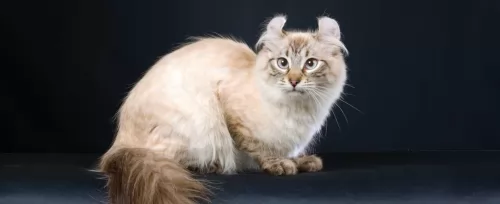 You’ll find your American Curl to be a friendly, loving cat that will easily bond with his human family. They’re adaptable cats and will happily adjust to your lifestyle.
You’ll find your American Curl to be a friendly, loving cat that will easily bond with his human family. They’re adaptable cats and will happily adjust to your lifestyle.
Despite their affection, however, American Curls aren't the type of cats to want to be pampered and petted - they are quite happy just to sit next to their owner and relax, or play with their toys.
Because American Curls are highly adaptable, they're suitable for a number of different home types, and homes with other pets or children, making you a splendid feline pet and companion.
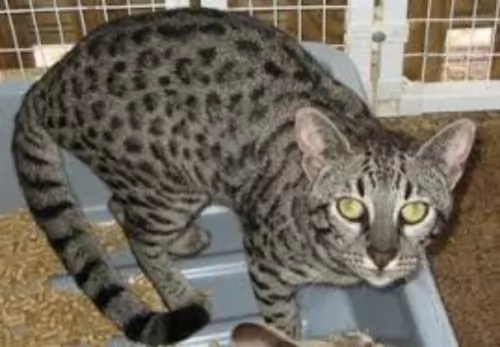 As a hybrid cat, your Safari is interesting alright, but unfortunately, you can’t ever be 100% sure of a hybrid cat. It needs careful consideration before you bring one into your home.
As a hybrid cat, your Safari is interesting alright, but unfortunately, you can’t ever be 100% sure of a hybrid cat. It needs careful consideration before you bring one into your home.
Apart from coming into the home from time to time, hybrid cats need an outside enclosure too that is securely fenced and gated and with a roof.
You made a decision to buy a cat with a wild side. It may live up to all your expectations but it may not either.
When you do research you find that the biggest number of behavioral complaints from owners of hybrid cats are about aggression issues and the refusal to use a litter box when indoors.
There is still a raging debate going on as to whether hybrids make suitable pets, but when you bring any animal into your home, as a responsible adult it is your job to provide well for it to ensure its happiness.
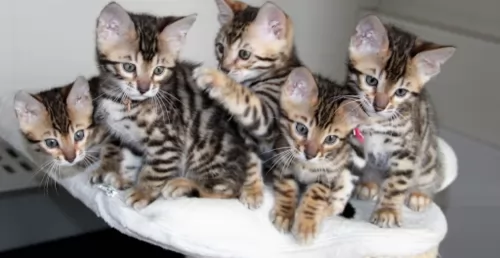 The Safari cat isn’t a particularly well-known breed so there isn’t much information on their health. They can suffer from the same illnesses as non-hybrid domestic cats.
The Safari cat isn’t a particularly well-known breed so there isn’t much information on their health. They can suffer from the same illnesses as non-hybrid domestic cats.
Certain hybrid breeds, such as the Safari, can sometimes have issues with reproduction as some cats are infertile. Domestic cats and wild cats have a different number of chromosomes and this results in reproductive problems, and stillbirths are quite common.
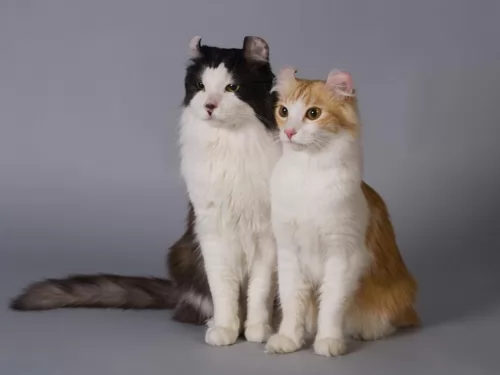 The Curl’s coat can be either short or long, but with a gentle brushing, the coat can be well maintained. The shorthaired variety sheds a bit more during the year than the longhaired variety and this is why grooming and brushing becomes necessary.
The Curl’s coat can be either short or long, but with a gentle brushing, the coat can be well maintained. The shorthaired variety sheds a bit more during the year than the longhaired variety and this is why grooming and brushing becomes necessary.
You can brush your cat’s teeth to avoid periodontal disease.
Trim your cat’s nails every other week if they don’t wear down naturally.
Check inside- and outside the cat’s ears for parasites and dirt. The cat’s ears have a unique shape and they may well be born with narrowed ear canals that can trap dirt and wax and this results in ear infections.
Like all cats breeds, your lean, muscular American Curl can be susceptible to obesity and heart disease. Speak to your vet about a special cat food for your feline friend as cat food is specially formulated to deliver the exact level of natural vitamins, minerals, fiber and antioxidants needed. Understand the amount of food your Curl requires by checking out the feeding instructions on the food labels. Always talk to your vet if you're not sure how much and what you should feed your cat.
Remember, that if you don’t want to do these grooming routines for your cat for fear of hurting him or not doing it properly, the vet or your local pet groomer will do it for you.
Make sure to provide your intelligent American Curl with toys and exercise. You can buy toys and games that will challenge his mental and physical abilities.
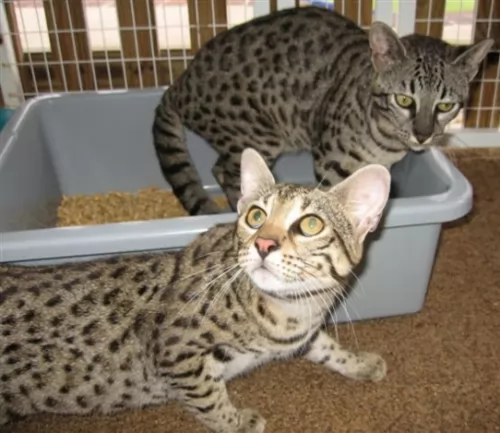 It is recommended that you brush this cat each week. He isn’t a big shedder but the brushing once a week keeps the fur in good condition, removing loose hairs and dust.
It is recommended that you brush this cat each week. He isn’t a big shedder but the brushing once a week keeps the fur in good condition, removing loose hairs and dust.
A high protein diet is imperative. Cats are carnivores and a meat diet is imperative. You can speak to your vet or a cat expert about feeding your Safari cat. Certainly, they need to be fed high-quality cat food. These foods are available in wet and dry form.
He will definitely need some raw meat. Make sure you understand the ingredients in some low- quality cat foods as corn for cats can be a problem for them, hard to digest and it could cause intestinal problems.